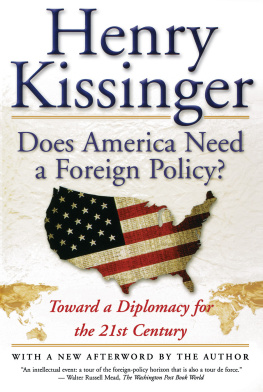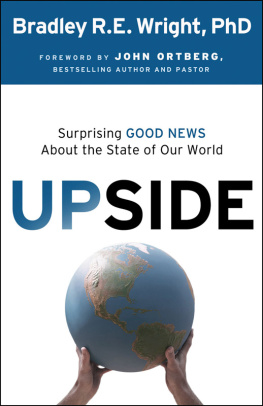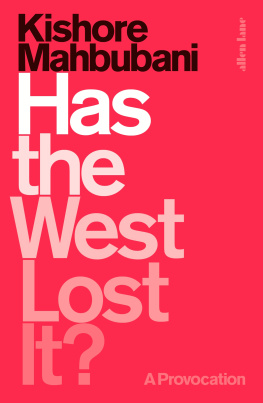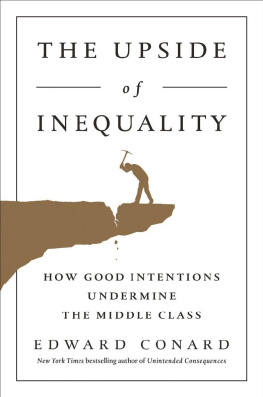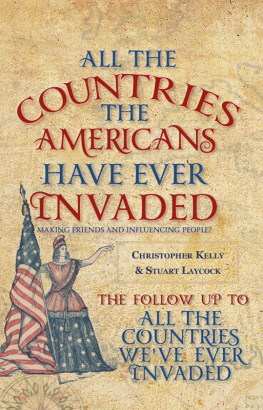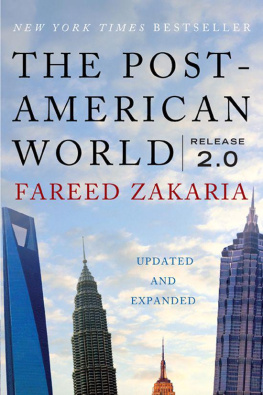
ALSO BY CHARLES KENNY
Getting Better

Copyright 2013 by Charles Kenny
Published by Basic Books,
A Member of the Perseus Books Group
All rights reserved. No part of this book may be reproduced in any manner whatsoever without written permission except in the case of brief quotations embodied in critical articles and reviews. For information, address Basic Books, 250 West 57th Street, New York, NY 10107.
Books published by Basic Books are available at special discounts for bulk purchases in the United States by corporations, institutions, and other organizations. For more information, please contact the Special Markets Department at the Perseus Books Group, 2300 Chestnut Street, Suite 200, Philadelphia, PA 19103, or call (800) 810-4145, ext. 5000, or e-mail .
Book design by Linda Mark
A CIP catalog record for this book is available from the Library of Congress.
ISBN: 978-0-465-06979-8
10 9 8 7 6 5 4 3 2 1
To Charlotte, Alexandra, Marguerite, Isla, and Julia
Contents
I MAGINE YOU WERE ABOUT TO BE BORN. And somehow, you got the choice as to where youd be born. Would you choose Asia, or Africa, or Europe, or the Americas? If you had any sense, youd be likely to choose one of the countries of North America or Europeor another safely developed country, like Australia, New Zealand, Japan, or Singaporenot least because your chance of surviving the first years of life would be higher there than anywhere else. When you reached an age to appreciate such things, youd probably also be richer, better educated, safer, and more secure in your rights. Youd be more likely to have an interesting job and a long and enjoyable retirement. All in all, by whatever measure, your quality of life would almost certainly be higher.
Of course, you might draw the short strawpoverty in the West can be soul-crushing and life-shortening just as wealth in India or Africa can afford all the luxuries the world has to offer. But on average, the advantages of being born in the West are clear.
Now imagine that the choice you are given is not where to be born, but whenanytime between the dawn of Homo sapiens and today. Again, your choice would be clearin fact, it would be even more specific. Today is the time to be born, whether your priority is a long, healthy life, or opportunities to learn, or options in what to do and consume, or freedom to live as you choose. Whether you will live in Africa or Asia or Europe or the Americas, no time has been as good a time to be alive as now.
There remain, again, millions of horrible exceptionslives cut short by disease, poverty, violence, or neglect. But those exceptions are rarer today than ever.
Put those two choices together. Being born today in the West is like winning the birth lottery for the human species. And nothing that has happened over the last few yearsthe global recession, tensions between the United States and Iran or North Koreahas changed that.
There are fears, however, that the quality of life in the West has reached a peak. That China or India will soon overtake Europe and America, leaving them in decline. Or that global progress will be reversed by shortagesof oil, or copper, or water, or cooler air. This book addresses those fears. It suggests that the only thing better than being born today in America or Europe will be the chance to be born tomorrow in those very same places. And it suggests that the rise of the Rest is one big reason why that is true.
There is surely much to argue with in the pages that follow. I believe that my statements about the pastabout things like the impact of trade and migration, or the mortality risk of terror, or the rate of progress in developing countriesare made on the basis of the best academic literature. Of course, that is a judgment call, and I do not always fully summarize the arguments on both sides. And when it comes to forecasts of the future, these are necessarily best guesses. Perhaps the developing world will sink back into the morass of low growthand perhaps young people in the West will turn their backs on it.
But the reason predictions about the future of humans are necessarily imperfect is that we can change that future. And I hope that enlightened self-interest in the West about the benefits of the rising Rest is one of the forces that can help push the future in a positive direction.
I say all that writing as a Westerner. I am lucky enough to have been born to a European father and an American mother, to have been brought up in the United Kingdom, and to have lived my adult life in the United States. My family and my wifes family are made up of two generations of intercontinental marriagesfive of them, all but one transatlantic. So when I write about what global changes mean for Europe and America, or what Europe and the United States should do about them, I am writing about us and about our response.
But I have been focused on (and sometimes lived in) Asian, Latin American, and African countries for most of my career. Im a proud uncle of a niece born in China, daughter to my brother and sister-in-law, who met while working in Hong Kong. My father-in-law was born, raised, and worked in Argentina, and my wife spent her first years in that country. So while I think of myself as Western, I speak from considerable personal experience when I say there is much that the Rest can offer people in the United States and Europe. My closest family and I have benefited immeasurably from a world of closer connections and expanding opportunitiesto explore, to make a living, to fall in love, to raise a family.
And I hope my children, nieces, and any future nephews will benefit even more. If the Rest gets wealthier, healthier, more educated, more democratic, and more peaceful, it will have even more to offer. So while the West will remain the best place to live in the world for most people for most of the foreseeable future, reaching out to the Rest will make our lives far richer, more interestingand even happier.

A S AMERICAS RECOVERY FROM the global recession that began in 20072008 staggers on, undocumented immigrants in the country are heading back home in search of a better life. Two US-led wars in the last decade have dragged toward an end charitably described as mission not completely failed. That the country could avoid default a couple of years ago only by stopping pretty much all of the other business of government bar naming post offices for a few weeks is reminiscent of the last days of the Roman Republic. Meanwhile, across the Atlantic, the Euro Zone, so obviously an ill-matched patchwork, is held together by fraying threads. Ninety percent of the French population reckons their kids will be poorer than they are. What a grim time to be from the West.
In fact, argument already rages over whether the United Statesthe anchor player for Team Westis still even the largest world
And China is only one part (if a large part) of a global transformation in the fortunes of the worlds developing countries. India, like China, more than doubled the size of its economy over the first decade of the twenty-first century. It may well overtake the United States by midcentury. Other developing countriesBrazil and Indonesia, Nigeria and Vietnamare also likely to see rapid growth. In total, suggests Subramanian, the countries of the developing world will control about two-thirds of global gross domestic product (GDP) as soon as 2030.
Next page

